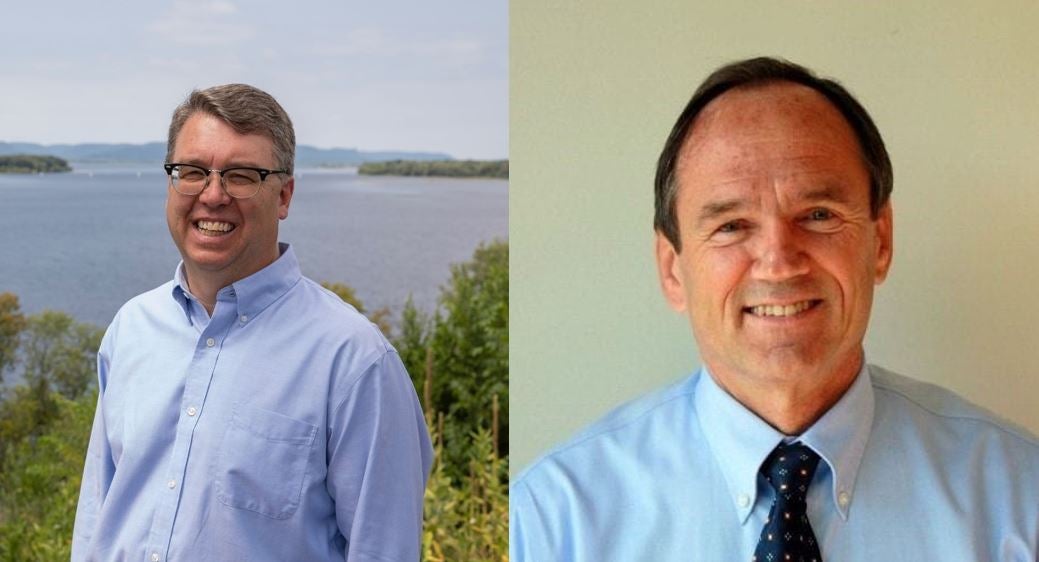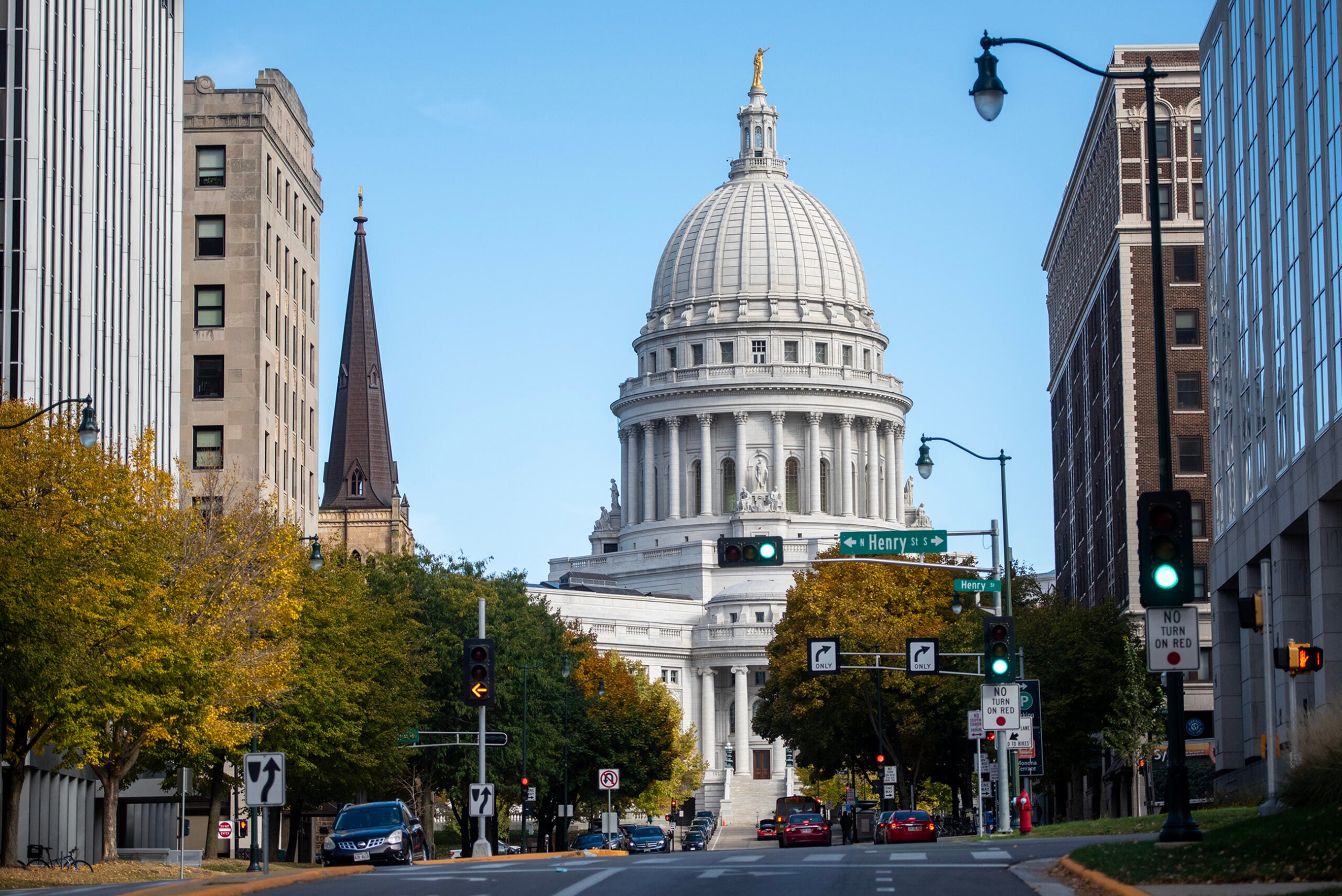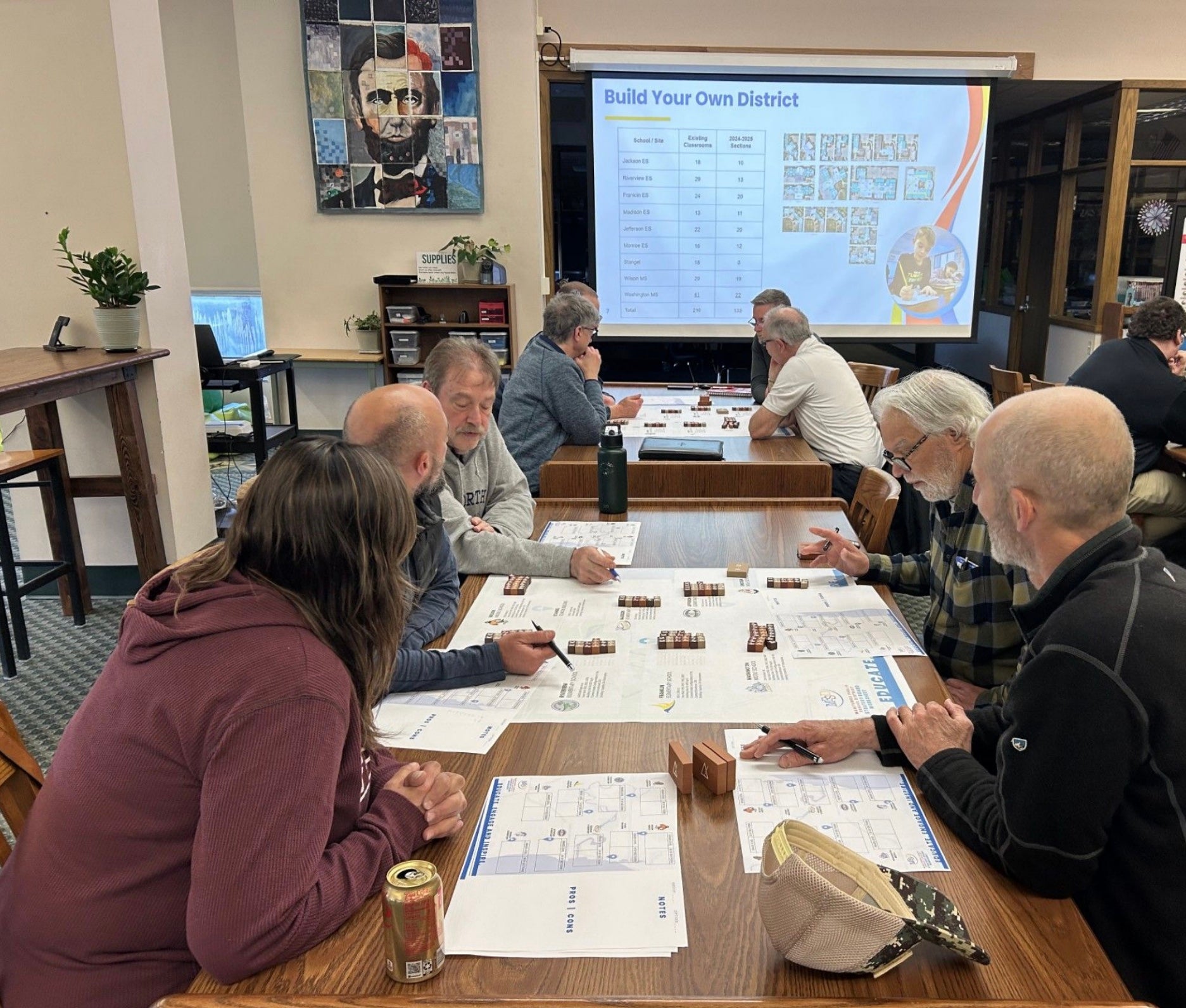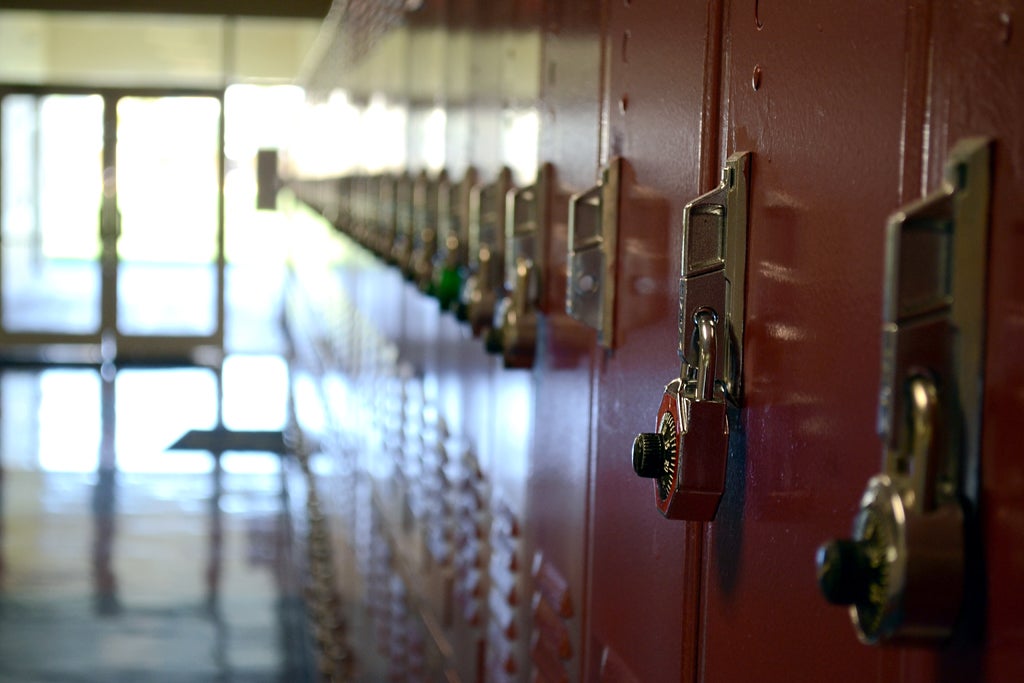Former Republican state Sen. Dan Kapanke is hoping to win back the 32nd Senate District seat he was once recalled from in a rematch against Democrat Brad Pfaff.
Kapanke and Pfaff ran against each other in 2004 for the seat, which represents constituents in La Crosse, Crawford, Vernon and Monroe counties. Kapanke won in 2004 and again in 2008 before losing a recall election to Jennifer Schilling in 2011. Schilling held the seat until May of this year, when she resigned.
In running for the seat, Pfaff is seeking to join the same body that rejected his appointment to be secretary of the Wisconsin Department of Agriculture, Trade and Consumer Protection in Nov. 2019.
News with a little more humanity
WPR’s “Wisconsin Today” newsletter keeps you connected to the state you love without feeling overwhelmed. No paywall. No agenda. No corporate filter.
The candidates appeared on Wisconsin Public Radio’s “Newsmakers” program, moderated by Ezra Wall, on Oct. 16.
This interview has been edited for brevity and clarity.
Ezra Wall: Unemployment hit almost 14 percent … during the “Safer-at-Home” orders. It’s still nearly double from where it was in January. How can we protect jobs and income and livelihoods in Wisconsin but still respond responsibly in terms of public health?
Brad Pfaff: We want to get back to our Friday fish fries, hanging out with our friends and family on Saturday afternoons and going to in-person church service on Sunday mornings. But, in order to do that, and to make sure that our economy continues to grow and move forward, we have to take this (coronavirus) serious. That means that we have to do three simple things all of us can do: wash our hands, socially distance and wear a mask.
Unfortunately, this has all become politicized. Our Legislature has not met since April on this topic. Instead of our leaders bringing us together, they’re dividing us. They’re playing politics with this issue. The Supreme Court just said, “No,” and threw out the (governor’s) orders. So now the small business owner has to walk up to the customer and say, “Hey, please don’t do this.”
Why are we putting small business owners in this position? The answer is that our legislative leaders are playing politics on this subject and, as a result of that, we can’t get our lives back to normal and our economy is not growing the way we want it to.
Dan Kapanke: We did a lockdown early in the COVID, way back in March. I understood that we had to do that, because there were so many uncertainties with this virus, but we can’t do that again.
So, to get our economy going we have to instill confidence in the people. We have to remove and lower the fear factor as much as we can, and we have to do things that are recommended. But for a governor to say that we have to have 25 percent max (capacity) in certain businesses, while others are allowed to have as many as they want, is picking winners and losers. I know they’re not 100 percent but, if (masks) work, we should be able to open up our economy.
EW: What can be done to ensure that every Wisconsinite has access to affordable health insurance coverage?
BP: Unfortunately, over the last few years, over the last 10 years, the misplaced priorities that came out of the Legislature and the previous governor, they scaled back the opportunities for self-employed and family farmers to participate and purchase BadgerCare. That’s wrong. The other thing that has been done over the last few years that was wrong was there was an ideological battle that has taken place within our Legislature and with the previous governor to say that they would not take federal Medicaid dollars. Money that our taxpayers have already sent to Washington, D.C., we’re not getting back. As a result, hundreds of millions of dollars that would come to federal Medicaid assistance, we’re not getting. As a result of that, too many individuals are paying too much for health insurance or don’t have health insurance.
DK: Under Democratic leadership in Madison and Republican, we have been a leader amongst all of the states as far as having a percentage of people covered with some kind of insurance, whether it be employer, private, medical, Medicaid or Badger Care. As far as Medicaid dollars coming from the federal government, certainly with COVID the dynamics have changed and … if I would get to Madison, I would be open to accepting those dollars to help (get) the coverage that we need for people that don’t have it.
EW: What is it that will keep public schools strong for those 91 percent of families who depend on them?
DK: Continue to do again in Wisconsin what we have been doing. The education budget, K-12, has always been right near if not on top as far as spending in our budget each and every year. It must be that way. It’s very important that we do that.
We have great ACT scores that have been good for many, many years hear in Wisconsin which means and indicates that we’re doing something right. I know that in the last budget, increased dollars went to K-12. Sparsity payments increased for those school districts with less population and less students, which is very helpful. Obviously, transportation to and from school is more costly for districts that are more rural. So that was addressed in the last budget. Again, it’s a priority in Wisconsin, K-12, it’s always been. It needs to continue to be so.
BP: We need to make sure that we keep our rural school districts, as well as urban and suburban school districts, strong and thriving. We need to make sure that we have some of the best educators in the classroom. We have to make sure that the school aid formula reflects the changes in the needs that are taking place here in western Wisconsin within our school districts. We need to make sure that we do everything that we can to close the achievement gap.
We need to make sure that we provide learning opportunities in this changing economy. We’ve got to have broadband for our school districts. We need to recognize the fact that we want to keep our schools safe and welcoming. We want to make sure that we engage the community when it comes to our education. We also want to be able to make sure that we have paths of learning for our students. As a state legislator, I will work in a bipartisan manner. I will convene groups to bring together our university leadership, our technical college leadership and our K-12 leadership to provide opportunities and pathways for advancement for our students.
Wisconsin Public Radio, © Copyright 2026, Board of Regents of the University of Wisconsin System and Wisconsin Educational Communications Board.





